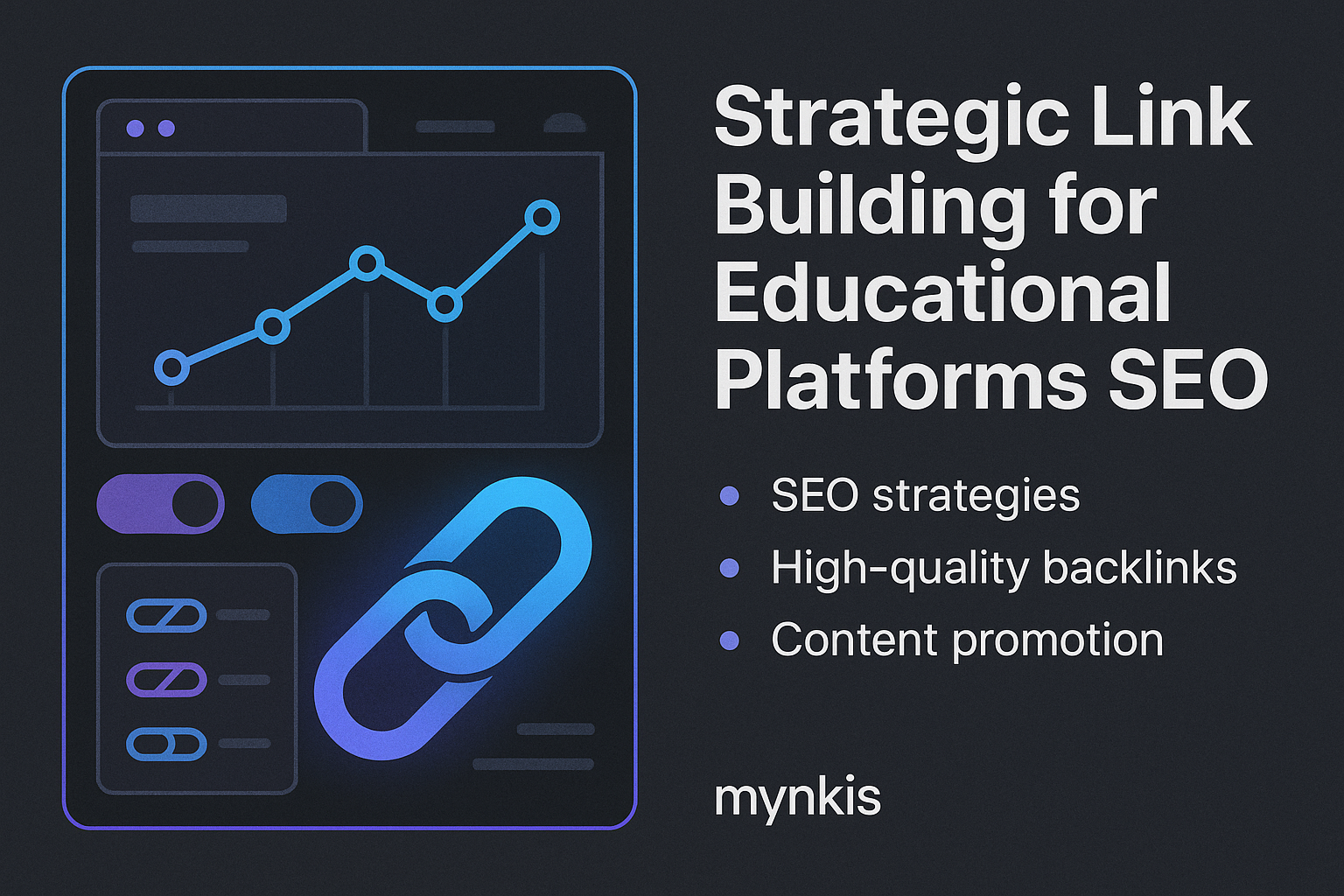Schedule a Demo
When it comes to boosting your school or university’s digital presence, search engine optimization (SEO) isn't just a luxury; it's an essential part of your strategy. High-quality backlinks play a pivotal role in this arena. I’ve spent years helping educational institutions build their online profiles, and without fail, the ones with robust link-building strategies see better visibility and higher engagement from students and educators.
In educational settings, backlinks do more than bolster SEO; they also position your institution as an authority in the learning sphere. A backlink from a respected academic journal, for instance, signals to both your community and search engines that your content is valued and relevant. But, how do schools go about cultivating these essential connections? Let’s dive into some actionable methods.
Establishing relationships with academic influencers provides a dual benefit: increased backlinks and heightened credibility. Collaborating with professors or researchers who contribute to scholarly articles can lead to natural backlinks. The key is finding those whose work aligns with your programs. For example, a tech university might work with an AI expert to write articles or provide content for student resource pages, which, in turn, link back to your website.
Your unique content—like research, case studies, or educational resources—can be powerful magnets for backlinks. Creating compelling, insightful content is one thing, but making sure it gets noticed by relevant websites is another. Consider publishing your research in academic communities or repositories, many of which encourage linking back to original sources. Moreover, your content can serve as guest material on education-focused blogs, where backlinks can earn you further exposure.
Engaging in event sponsorships or partnerships with other educational institutions can foster backlinks as well. Hosting a webinar, sponsoring a hackathon, or supporting a conference related to your academic specialties gives you a platform where your name and link can be shared. This approach can elevate your visibility and draw in links from event pages, promo sites, and conference directories. Always, always follow up to make sure your partnership leads to live, working backlinks.
Another route to gaining backlinks is to list your institution in educational directories or academic listings such as CollegeXpress. These aren’t always automatically recognized by Google as valuable backlinks, so selectively choose high-authority, education-specific directories to make the most impact. Review your institutional citations periodically because stagnant or broken links here could harm rather than help your SEO efforts.
Never underestimate the power of your alumni network for backlinks. Engaging your alumni to write for or contribute back to their alma mater not only fosters a sense of community but also boosts SEO. Encourage them to link back to university pages from their professional profiles, industry articles, or personal blogs. These links reinforce your institution's network and enhance your online credibility.
While social media links typically don’t directly contribute to SEO rankings, they can indirectly boost SEO by driving traffic that could lead to backlinks. A well-curated social media campaign that shares research, achievements, or events encourages shares, which might inspire bloggers, educators, or institutions to link to your content. Harness social platforms not just for engagement but as a tool for igniting those valuable link opportunities.
Curating student and staff testimonials can earn you backlinks if you engage with platforms or websites that offer to share or spotlight such stories. Similarly, co-authoring research papers or collaborative educational projects can be strategically advantageous for SEO backlink building. Work closely with external researchers or adjacent academic programs to highlight your joint work on various academic platforms, echoing the benefits all around.
The path to earning effective backlinks isn’t always smooth for schools; academic partnerships can take time, and competition among educational institutions for online visibility is high. Always craft compelling outreach emails that underscore the value your institution brings to the table. Tackle the challenge of link relevancy and domain authority by meticulously selecting where you seek backlinks and consistently tracking their performance to ensure they positively impact your search rankings.
As an institution in education, it's critical to maintain ethical SEO practices. Avoiding black-hat SEO tactics such as paid link schemes is a must. Instead, cultivate organic, quality backlinks through efforts like in-depth research publications and inter-institutional collaborations. Adhere to search engine guidelines to safeguard your website's ranking and reputation.
To truly gauge the impact of your link-building efforts, you need to monitor metrics like domain authority, search engine rankings, and organic traffic. Tools like Ahrefs, Moz, or Google Analytics can reveal these patterns over time. Keep a constant watch on your backlink profile to eliminate any harmful links; emphasizing proactive SEO maintenance ensures your strategy keeps paving the way for increased visibility.
No static strategy wins in SEO, especially in the varied and fluid educational landscape. Adaptability is your ally. Analyze the link-building approaches that work—rich content collaborations, perhaps, or strategic event sponsorships—and take note of where they fell short. Based on this feedback loop, constantly refine your approach to ensure that as search algorithms evolve, your institution’s digital prominence follows suit.
The world of educational SEO is bound to change, and link building will remain a critical element. Staying abreast of trends, leveraging new academic partnerships, and offering pioneering educational resources will secure the backlinks your institution needs to stay competitive. Monitor both strategic pivots in the educational sector and shifts in SEO algorithms to keep your link-building initiatives both relevant and resilient.
